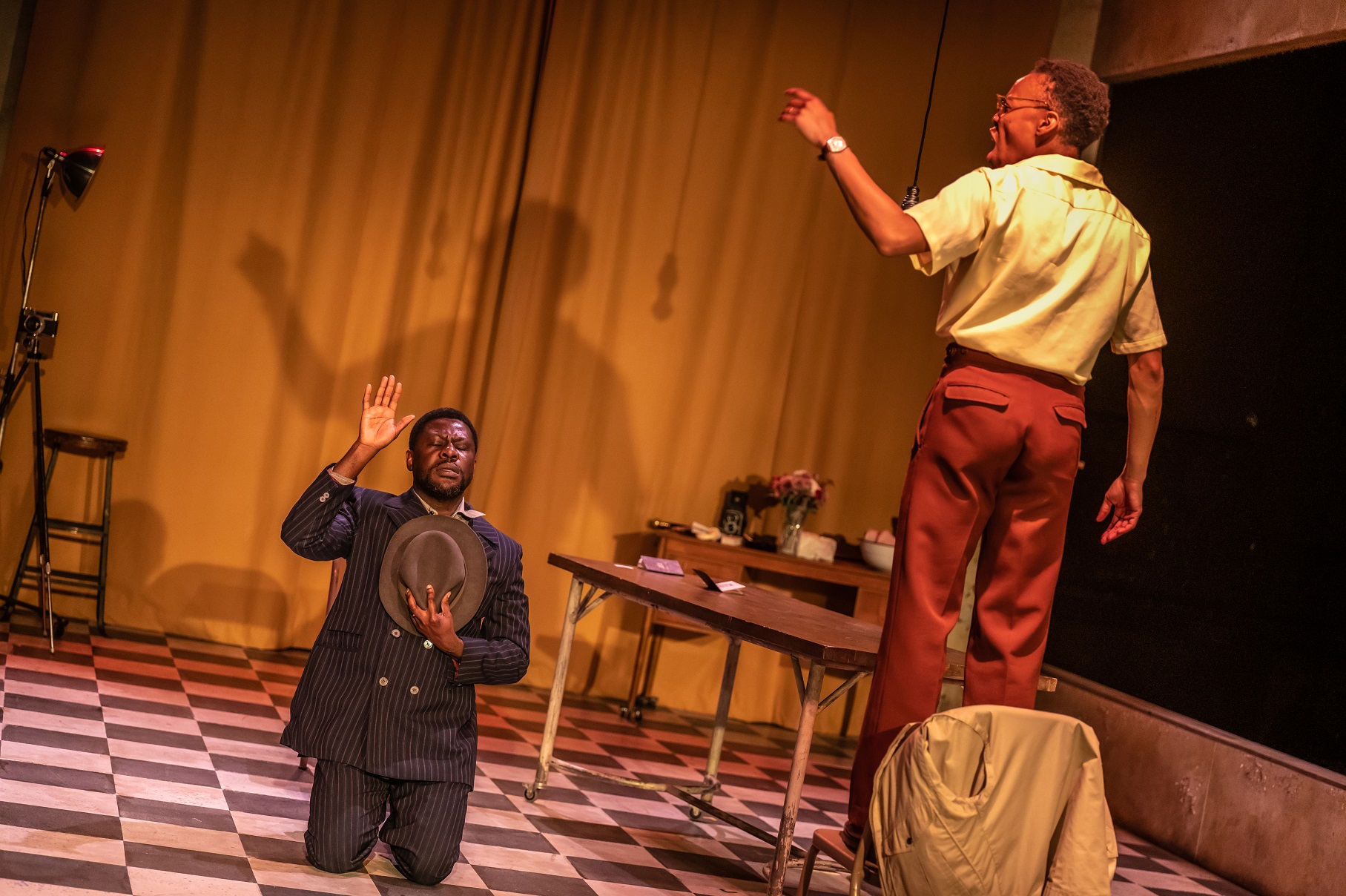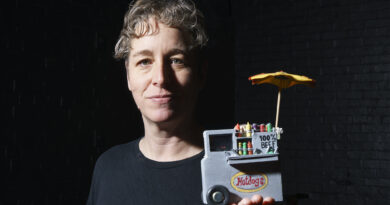Sizwe Banzi is Dead . . . yet SO alive on the Soulpepper stage
Athol Fugard, John Kani and Winston Ntshona’s Sizwe Banzi is Dead, onstage now in a Soulpepper production directed by Mumbi Tindyebwa, feels less like a play being performed than a two-handed act of theatrical ensorcellment. In their maximalist performance on a minimalist stage, actors Amaka Umeh and Tawiah M’Carthy conjure – out of language, emotion and movement – the crushing weight of apartheid-era South Africa and the resistance and resilience of the Blacks it oppressed.

The spellbinding Umeh plays two roles. We meet the first as the play opens. Styles, a photographer, prowls his sparsely decorated shop-space and holds court with the audience members on three sides. In a prolonged exercise in magnetic worldbuilding, Styles recounts and repudiates stories from the white-penned newspaper. He reviews the complicated path to becoming a Black entrepeneur. And — in an inspirational counter to the whitewashing of reality by media, government and business – he takes us behind the photos on the shop walls. We learn about the racism and inequality shaping their backstories. And we thrill to the photographs’ capture of aspiration, storytelling and possibility divorced from those constraints.
Umeh’s Styles is magical, mesmerizing and mobile: a vital trickster who weaves spellbinding narratives while slinking and circumnavigating the space like a dancer. It’s impossible to pull our eyes (and ears) away. And the same is true of Umeh’s second role as Buntu. A more tenuously self-made Black man, he will offer the play’s title character the substantive — and dangerous — kind of support on which the plot turns. Buntu’s gravitas, generosity and intensity compel our attention – and his sustained, if less comedic physicality elaborate the central conjuring act.
Tawiah M’Carthy’s Sizwe Banzi provides the beating heart of the play. When he appears at Styles’ shop, the titular narrative begins. An epitome of apartheid’s racist controls, his plight requires him to choose between family and self, society and self, and even different definitions of “self”. In a haunted, plaintive performance that is the equal of Umeh’s, M’Carthy’s Sizwe proves to be another fierce and vital life force.
For ultimately, Sizwe Banzi is Dead is a study of identity. It’s about who these three Black men are, as opposed to what their government-stamped Passbooks and employers tell them to be. And it’s about the acts of courage – large and small, individual and collaborative – that are required to evade official identity in order be one’s best self: a father, a husband, an entrepreneur, or even just a man.
And though this is play comes from a distant country (South Africa) and a distant time (1972), we are not permitted to hold ourselves apart from it. As the Director’s note reminds us, apartheid was modelled after the Canada’s policy towards Indigenous peoples. And such policy, like theatre itself, depends on pretense and artifice. So the characters insistently and routinely break the fourth wall: pulling audience members into their mesmeric movement and crucial conversations, and challenging us to see how we are implicated in this conjured reality.

In the end, this tour-de-force production is both a rebuke of complacency and a paean to the futility of systemic racism. Sizwe Banzi is Dead conjures a dangerous world with grim, life-and-death costs. But the brilliant vitality of these characters’ spirits – and these actors’ sublime performances – simply will not be contained.
They resist apartheid structures which began to be dismantled some thirty years ago. They break free from conventions of visual, verbal and textual representation. And in the ultimate act of artistic sorcery, they come oh-so-close to slipping the bonds of the stage itself.
Sizwe Banzi Is Dead is on stage at the Young Centre for the Performing Arts until June 18, 2023. Reserve tickets on soulpepper.ca.
© Scott Sneddon, Sesayarts Magazine, 2023
About The Author
Scott Sneddon
Scott Sneddon is Senior Editor on SesayArts Magazine, where he is also a critic and contributor.
Visit About Us > Meet the Team to read Scott’s full bio …



